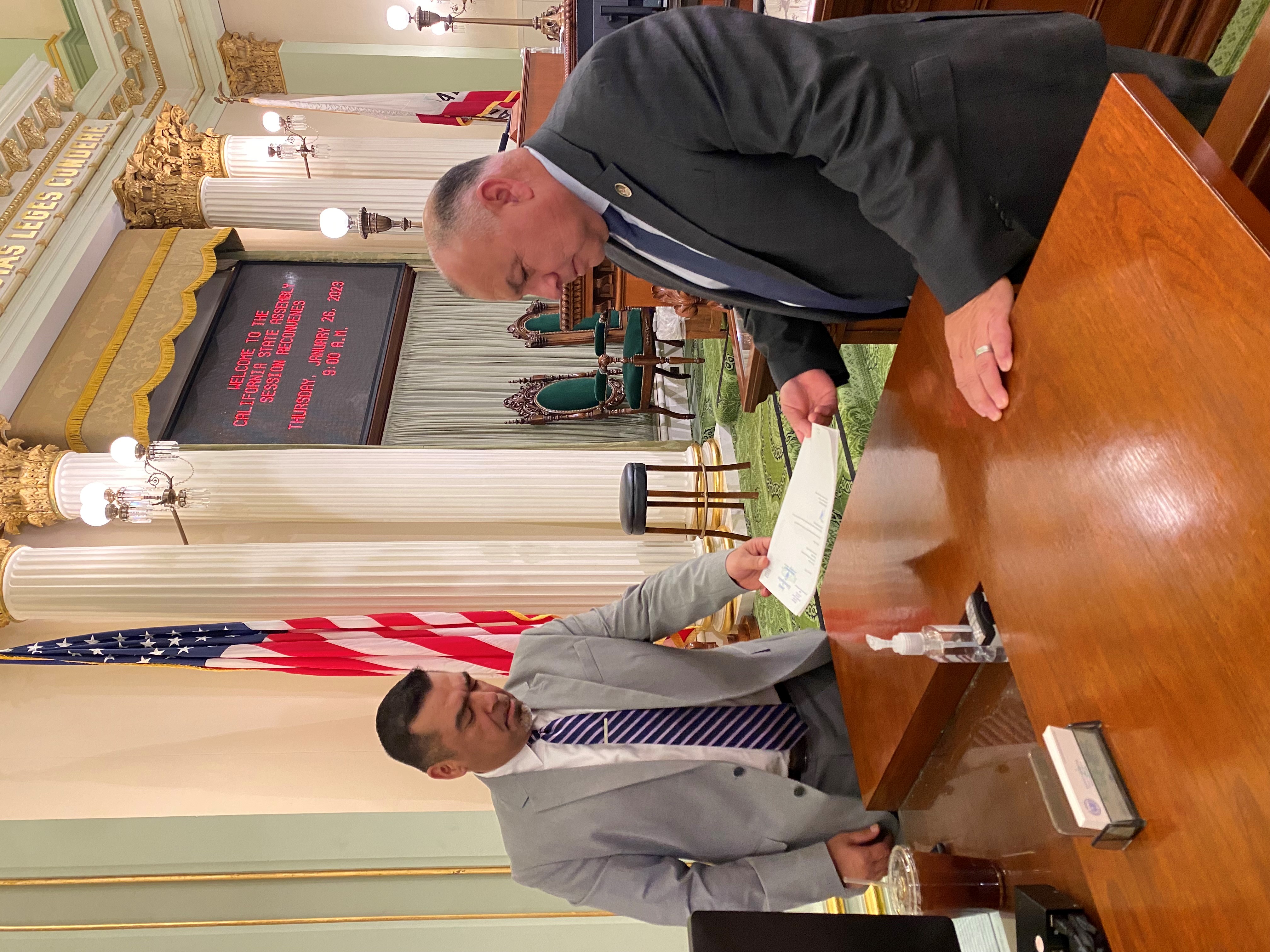- Taylor Gonsalves
- Communications Director
- (916) 319-2053
- Taylor.Gonsalves@asm.ca.gov

(Sacramento, CA) – Today, Assemblymember Freddie Rodriguez (D – Pomona) introduced AB 296, which would establish the 9-1-1 Public Education Campaign to be administered by the California Office of Emergency Services (Cal OES) to educate the public on when it is appropriate to call 9-1-1 for assistance. 9-1-1 is routinely called inappropriately, and while this has been an ongoing issue, the COVID-19 pandemic only exacerbated the problem, creating an even greater need to create this public education campaign.
“As a career first responder, I have witnessed the domino effect when the 9-1-1 system is flooded with non-emergency calls. Hospitals become overcrowded, EMTs experience unduly long wall times, and patients needing immediate care do not receive such. AB 296 will educate the public on when it is appropriate to call 9-1-1 and alleviate these issues,” stated Assemblymember Rodriguez.
According to a study conducted by AAP, 91% of kids don’t know how to call 9-1-1, and while this proposed campaign isn’t focused solely on kids, it is a staggering statistic that needs addressing. A statewide campaign teaching all Californians how to appropriately utilize 9-1-1 services will benefit both parents and their children.
Last year, the Assembly Committee on Emergency Management held an oversight hearing on wall times. One of the recommendations from this hearing was to educate the public on when it is appropriate to call 9-1-1 for assistance, as there were many instances of the public calling 9-1-1 centers for non-urgent matters.
California’s 9-1-1 dispatchers are critical components of an effective 9-1-1 system that protects and serves the state’s population.
However, 9-1-1 is routinely called in non-emergencies due to a need for knowledge of what other resources to utilize or an understanding of 9-1-1 appropriateness.
A public education campaign on when to call 9-1-1 and when not will improve the ability of dispatchers to send emergency services to those in need swiftly and efficiently. The public and our first responder community will significantly benefit from an educational campaign that helps the public learn to differentiate between the necessity of a 9-1-1 call or other non-emergency services.
“Educating the public on the proper use of 9-1-1 is paramount to ensuring the system operates efficiently and effectively for everyone. Inappropriate use of 9-1-1 can cause delays for those who are calling with life-threatening and true emergency situations,” stated Rosa Ramos, President of the California Chapter of the National Emergency Number Association.
Assemblymember Rodriguez (Twitter) represents the 53rd Assembly District which includes the cities of Chino, Montclair, Ontario, Pomona, and Upland. He is Chair of the Assembly Committee on Emergency Management.
